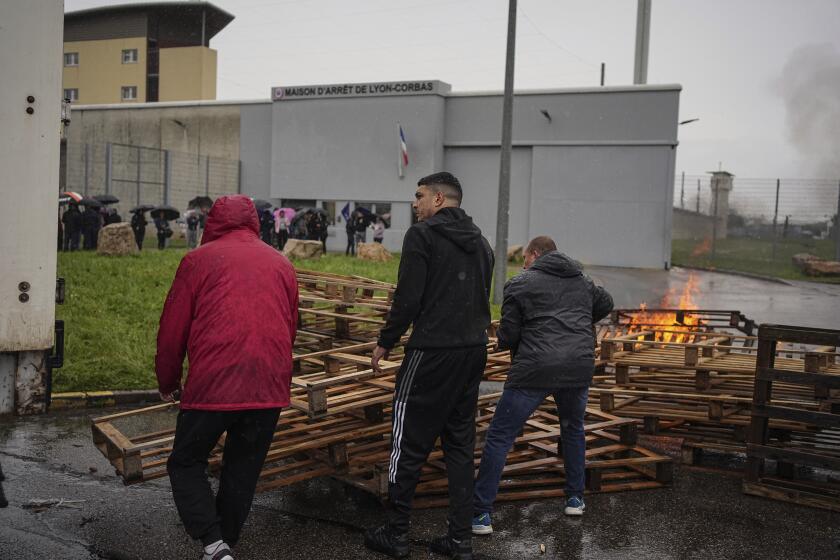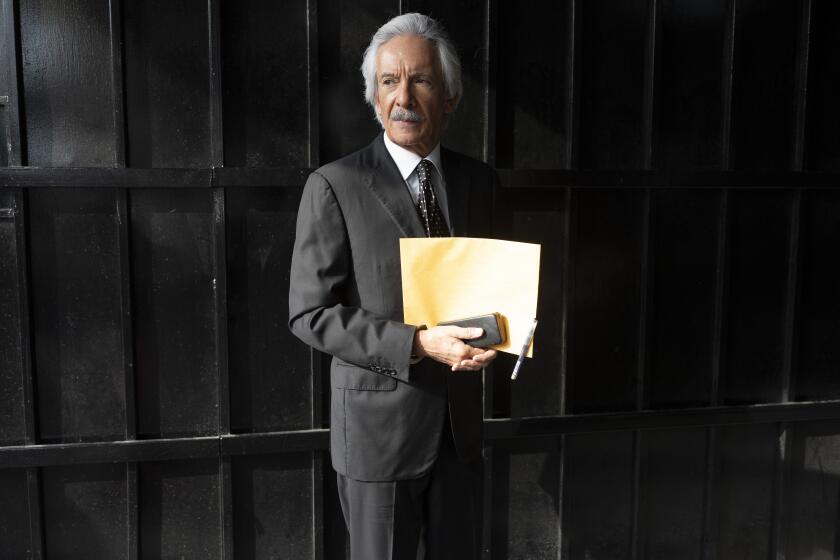China to Press U.S. on Arms Control Pact
China will send its top arms control official to Washington in March in an effort to break a deadlock in nonproliferation talks, a senior Chinese Foreign Ministry official said Tuesday.
Securing a deal that would hold China to its November 2000 pledge not to export missile technology to countries including North Korea and Iran was a key objective that eluded President Bush during his visit to Beijing last week.
The official, speaking to foreign reporters on the condition of anonymity, said China was firmly committed to nonproliferation, and he urged the U.S. to meet the Beijing government halfway.
“We think the ball is in your court,” he said. “We have made our efforts, and we would expect you would act in the same way.”
Although Beijing has not directly spelled out a quid pro quo that would lead to a deal, it has clearly signaled what it hopes Washington will do: curb arms sales to Taiwan, which China sees as a separatist province; lift sanctions against Chinese companies accused of weapons technology sales; and end restrictions on Chinese rocket launches of U.S. commercial satellites.
The trip by chief arms control negotiator Liu Jieyi will mark the third time in recent months that a top Chinese diplomat has traveled to Washington to press for an arms control agreement.
Nonproliferation talks are stalled over U.S. insistence that Beijing’s pledge applies to contracts signed before November 2000, and disagreement over the list of technologies whose export China should ban.
The Foreign Ministry official pledged that China “would publish the list in due course.” He reiterated Beijing’s contention that some Chinese firms exported weapons technology without the government’s knowledge or consent.
“If entities are discovered to have violated regulations and policies, they will be punished, and it won’t happen again,” the official said.
He also said that Beijing would conduct other official exchanges in a bid to maintain the positive momentum in U.S.-China relations following Bush’s visit.
Chinese Vice President Hu Jintao’s first visit to the U.S., announced last week, has been set for April, the official said. Hu is expected to replace President Jiang Zemin next year.
The official also confirmed that China has agreed to let the FBI station an agent in Beijing to coordinate anti-terrorism and law enforcement cooperation, while Beijing is considering sending one of its law enforcement officials to the U.S. for a similar purpose.
The Foreign Ministry official indicated that although the regime put up with Bush’s lectures about U.S. values during his trip, it was less accepting of his stance toward Taiwan.
Last week, Bush repeatedly dodged Chinese questions about why he emphasized the peaceful settlement of the Taiwan issue--and not necessarily reunification, which Beijing seeks with the island.
“A ‘one-China’ policy implies reunification,” the official insisted.
He added that Washington’s policy toward Taiwan was inconsistent with its goal of maintaining peace in the Taiwan Strait.
“By selling weapons and increasing contacts of an official nature, including military contacts,” he said, the U.S. is “sending the wrong signal to Taiwan.”
More to Read
Start your day right
Sign up for Essential California for news, features and recommendations from the L.A. Times and beyond in your inbox six days a week.
You may occasionally receive promotional content from the Los Angeles Times.






